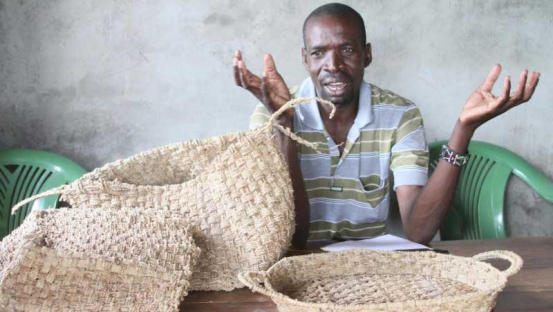×
The Standard e-Paper
Join Thousands Daily

When the government announced the ban on plastic bags in August, a group of men in the depths of Kisaka beach of Lake Vicotria started preparing for a new beginning.
They had waited for this kind of news since 2014 when they ventured into basket making. They had a good concept in mind. They were to pull out the water hyacinth that deposited at the shore of the lake, dry it and use it as weaving material for their baskets.